2020-2021 Professors for the Future Fellows
To see the final posters, please click on the title of the project.
To view previous Professors for the Future Fellows, please click here.
Giving and Receiving Feedback: Skills for Academics from Outdoor Education
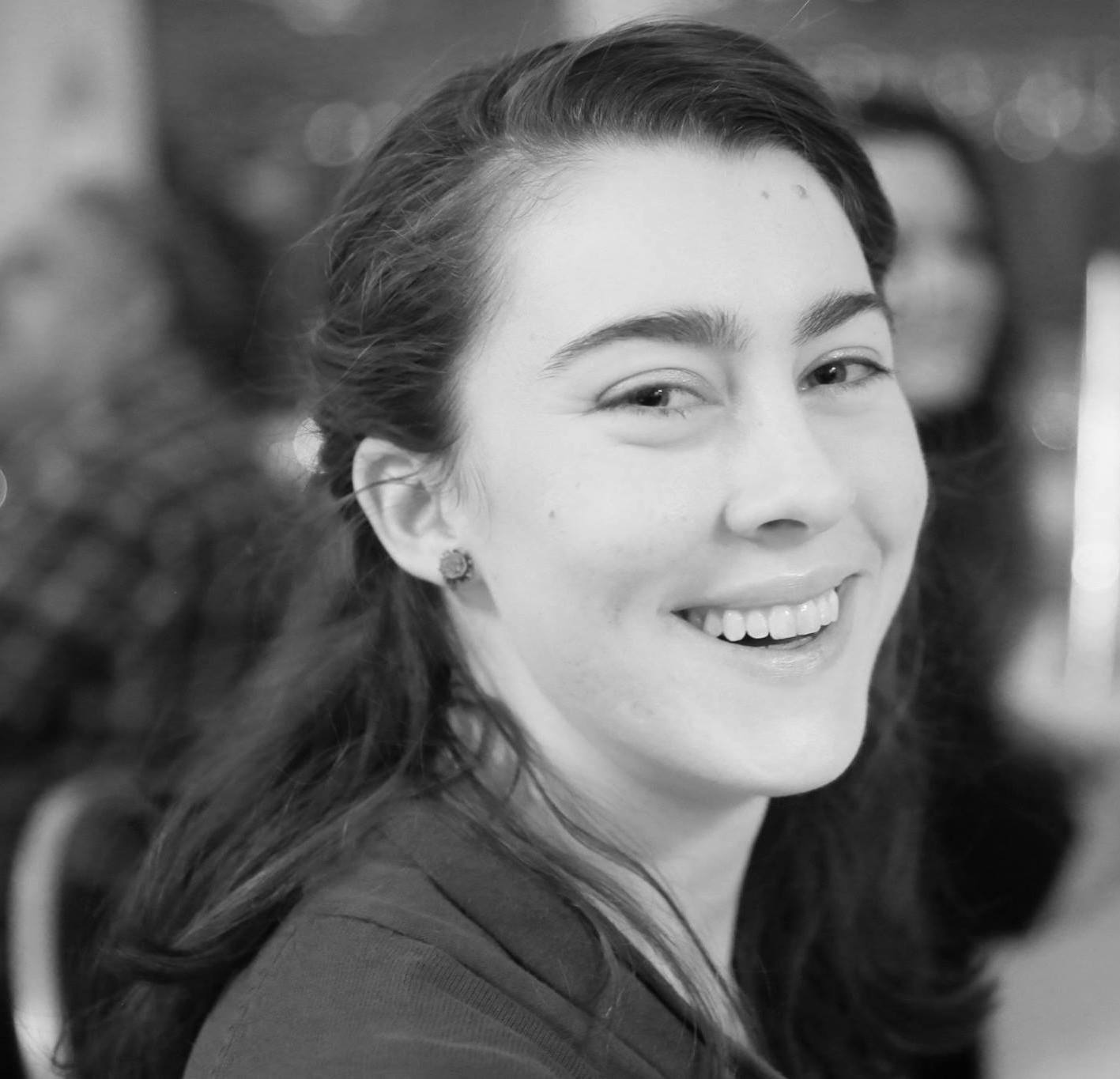
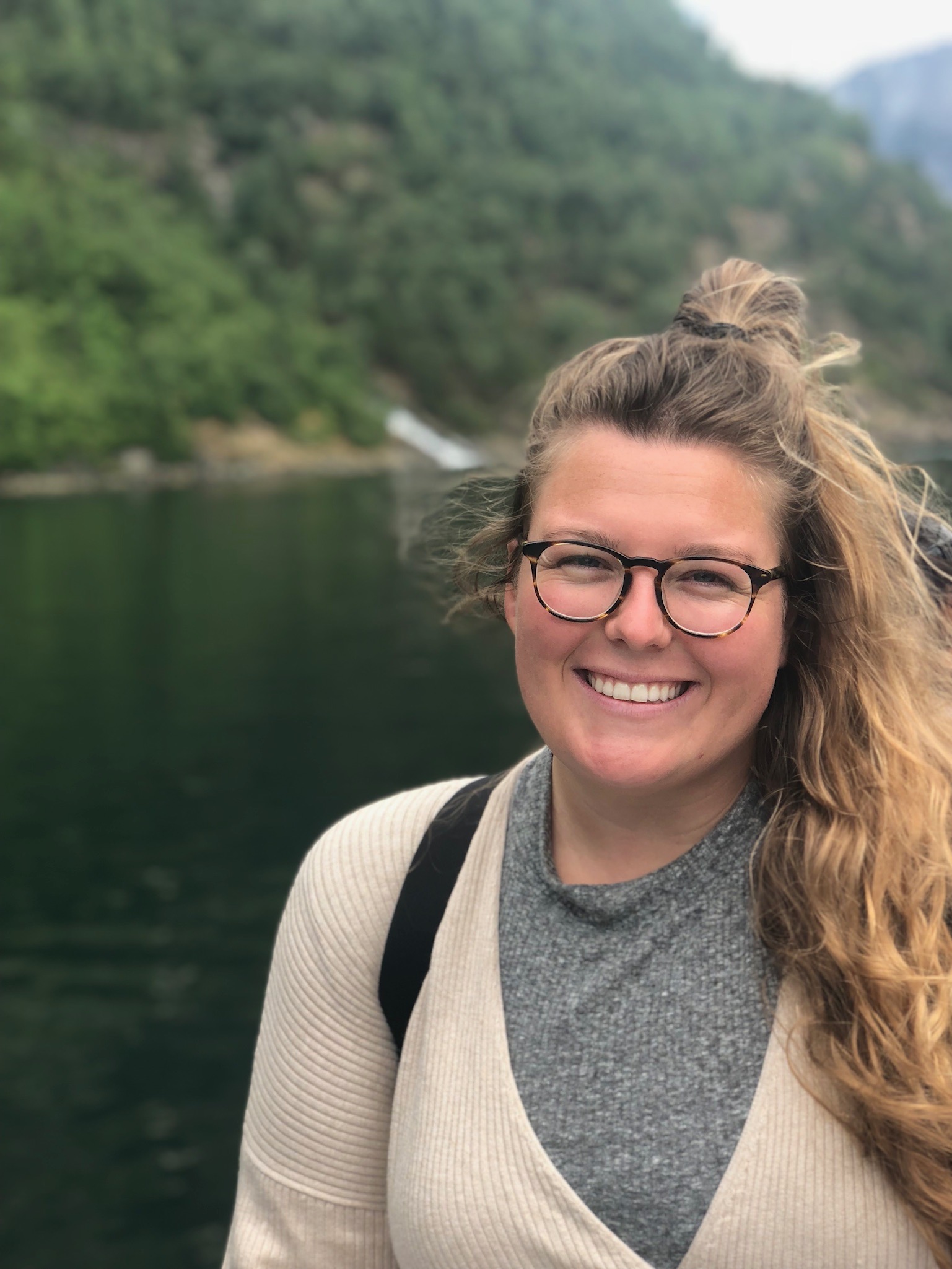 Charlotte Ambrozek & Olivia Winokur
Charlotte Ambrozek & Olivia Winokur
(Respectively: Ph.D. student, Agricultural and Resource Economics and Ph.D. student, Entomology)
Graduate students and postdoctoral scholars receive technical training in their field’s advanced methods and knowledge but are not trained in leadership and communication skills that are crucial for academic and personal success and wellbeing. As a trained outdoor educator and academic, who understands how communication-based skills learned in outdoor education can improve academics’ overall effectiveness, my project translates communication and feedback skills from outdoor education programs into a toolkit for academics. The project has two components: a four-episode podcast and an infographic.
Episode one of the podcast introduces listeners to principles of communication and feedback to establish a common language and toolkit moving into the remainder of the episodes. We cover the SMART acronym as a template for giving feedback (Specific, Measurable, Attainable, Relevant, Timing), as well as using I statements and praise sandwiches. We emphasize the importance of tone and being solution-oriented when giving and receiving feedback. We also discuss some principles for resolving conflict, particularly the VOEmP acronym (Vent, Own, Empathize, Plan).
In the second episode of the podcast, we interview Mark Holton, the co-director of Cornell Outdoor Education. With Mark, we discuss how feedback is a mechanism for growth. We also discuss how to handle giving feedback around conflict - giving feedback early and often to avoid conflict - and managing conflict resolution. Mark emphasizes the value of obtaining feedback from peers and lays out some systems to make feedback work better in academia.
In the third episode of the podcast, we interview Sidney Woodruff, a UC Davis Ecology graduate student and mentor for MUSE (Mentorship for Underrepresented STEM Enthusiasts). The main takeaways from this episode include how feedback is essential for field safety; the importance of soliciting feedback from junior people; how power dynamics and academic culture can facilitate feedback that is destructive rather than constructive; and how creating structures for timely feedback can facilitate growth.
The final podcast episode recaps the lessons learned and takeaways from the previous episodes. We also walk listeners through our infographic. The infographic is a visual summary of the podcast material. It includes the toolkit from episode one as well as key takeaways from our speakers in episodes two and three. The infographic is designed as an easily available reference for academics, particularly grad students and postdocs - perhaps hanging on a corkboard in an office or a department break room.
Our project equips academics with some essentials of communication through giving and receiving feedback. We expect that these materials will provide academics with the tools to navigate interpersonal challenges in research, teaching, mentoring, and professional life.
A Guide to Original Survey Research: Qualtrics Design, Data Analysis, and Distribution
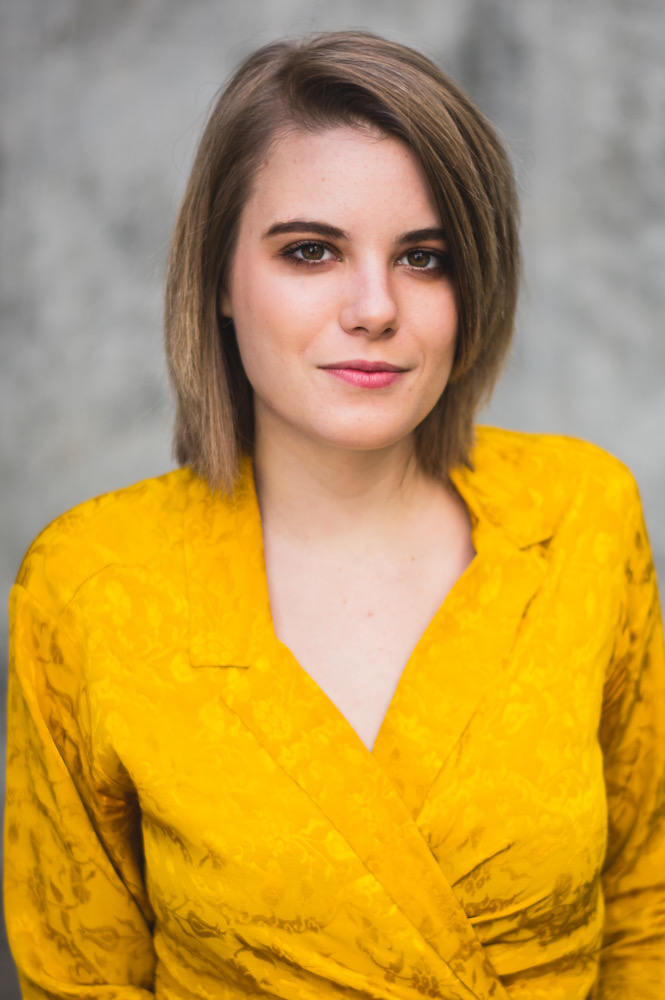 Rowan Haus
Rowan Haus
(Ph.D. student, Sociology)
Now more than ever, academics are abandoning in-person research projects for alternative methodologies compatible with a remote workstyle. For social scientists in particular, creating and distributing digital surveys is an excellent way to reach a large, purposeful research sample while working from home. Although UC Davis graduate students have access to Qualtrics, a powerful online survey tool which allows users to collect their own survey data, the program is rarely used for dissertation research.
My PFTF project provided graduate students with the skills necessary to conduct original survey research, with the aim of increasing both the quantity and quality of Qualtrics usage at UC Davis. I led a two-hour workshop addressing key issues, such as (1) howto design a methodically rigorous survey on Qualtrics, (2) how to recruit survey and interview participants on social media, and (3) how to conduct a preliminary analysis of Qualtrics survey data.
The workshop was held on Zoom, and participants receiveda step-by-step tutorial for every stage of the Qualtrics research process. Overall, workshop attendees said they were most excited to learn about advanced survey design (including topics like skip question logic and survey flow). At the end of the workshop, most attendees reported feeling more confident in their ability to design a survey on Qualtrics, and all attendees said they would recommend theworkshop to a colleague.
Data Management Workshops for Transparent, Reproducible Research
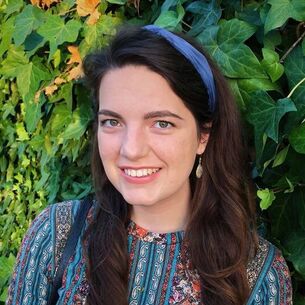
Victoria Farrar
(Ph.D. student, Animal Behavior)
While most researchers receive training in experimental methods and data analysis, explicit training in data management practices remains uncommon. Data management skills are often only gleaned through “tips and tricks”, and often best practices are not utilized (or learned) until after data is collected, when frustrations may have already begun to arise. To help graduate students and postdoctoral scholars avoid and prevent these issues, I developed a series of workshops that offered data management training useful across levels of computational expertise. This project aimed to introduce graduate and post-graduate researchers to data management best practices and offer strategies they can use to improve their data practices and avoid common pitfalls in their analysis workflows.
In collaboration with UC Davis DataLab, I developed and taught two online workshops on data management best practices in winter 2021. The first, “Excelling with Excel: Keeping Your Data Tidy” focused on data organization and validation using filters, restricted vocabularies and other tools available in Microsoft Excel and other spreadsheet managers. This workshop was offered during the UC-wide Love Data Week, and 57 participants attended from across multiple institutions. Second, “README, Write Me! Metadata and Documentation Workshop” exposed participants to different forms of metadata and data documentation for their projects, such as README documents, data dictionaries, and workflow diagrams. This workshop was hands-on, and after instruction, included built-in time for participants to develop their own documentation with guidance. 55 participants attended, and 82% of feedback survey respondents reported that they are likely to put what theylearned into practice. All workshop materials are online via the DataLab events archive.
Exploring Mindfulness Meditation and Applications to Academic Life as PhD and Postdoctoral Scholars
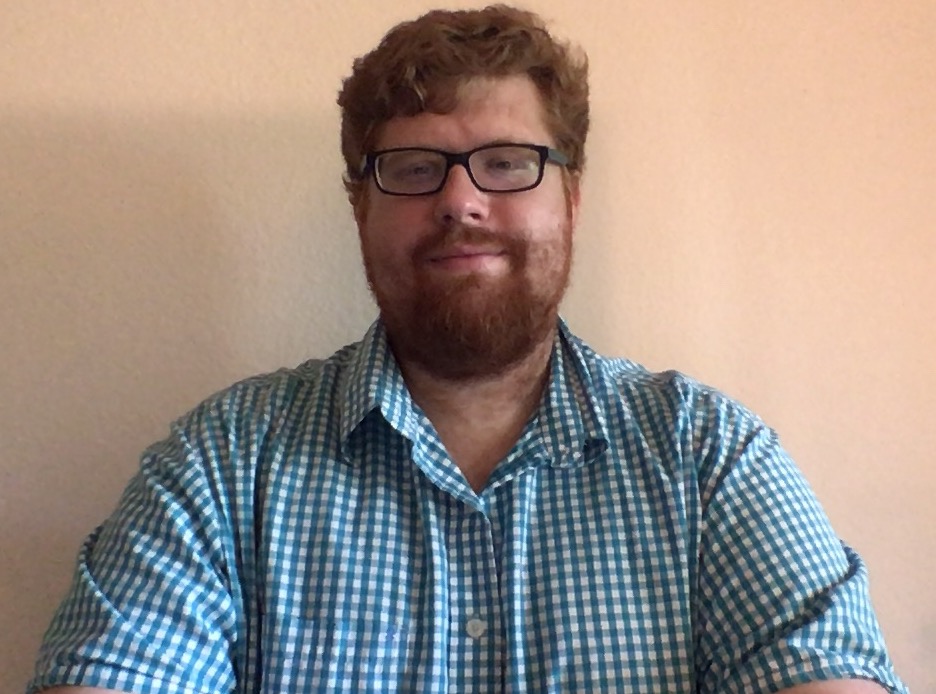
Keith Warren-Fraga
(Ph.D. student, Biochemistry, Molecular, Cellular and Developmental Biology)
Academic work and training demands significant commitment, time, and focus. In many cases, the emotional, intellectual, physical demands of academic work and training can lead to stress, anxiety, depression, and burnout. A 2018-2019 Professors for the Future Project surveyed the UC Davis graduate student population to measure the magnitude of mental health concerns in the UC Davis graduate community. From this survey, approximately one-third of graduate students reported feelings of anxiety and depression during their studies. My PFTF project contributes to the growing conversation and awareness around mental health on campus by exploring mindfulness meditation. Mindfulness meditation is a meditative practice that focuses one’s attention to the present moment and a non-judgmental appraisal of our emotions, feelings, sensations. A deliberate mindfulness practice sharpens a set of skills and muscle memories to “notice what you notice”. This three episode podcast series features guests with years of experience in psychology, counseling, and meditation.
Episode 1 takes a birds-eye-view of mindfulness meditation. With guest Patrick Champagne (LCSW), we discuss current understanding of the benefits of mindfulness meditation and a holistic view of why we meditate. In Episode 2 we dive deeper into how one starts and sustains a meditation practice. With guest, Dr. Margaret Lee we explore how compassion plays a role in meditation, what challenges can arise in beginning meditation, and expanding what it means to meditation. Episode 3 we investigate how being mindful can help one pause and stake stock of our emotions and ultimately make a more mindful decision for our next action. With guest Shani Simon (LCSW), we discuss the continuum between response and reaction, the power of the pause, and how mindfulness meditation contributes to our ability to pause.
In all three episodes, our guests guide us in short grounding meditations for the audience to follow along and practice with us in our meditation journeys.
Python Bootcamp: Preparing Incoming Grad Students for the Programming Requirements of Courses and Research
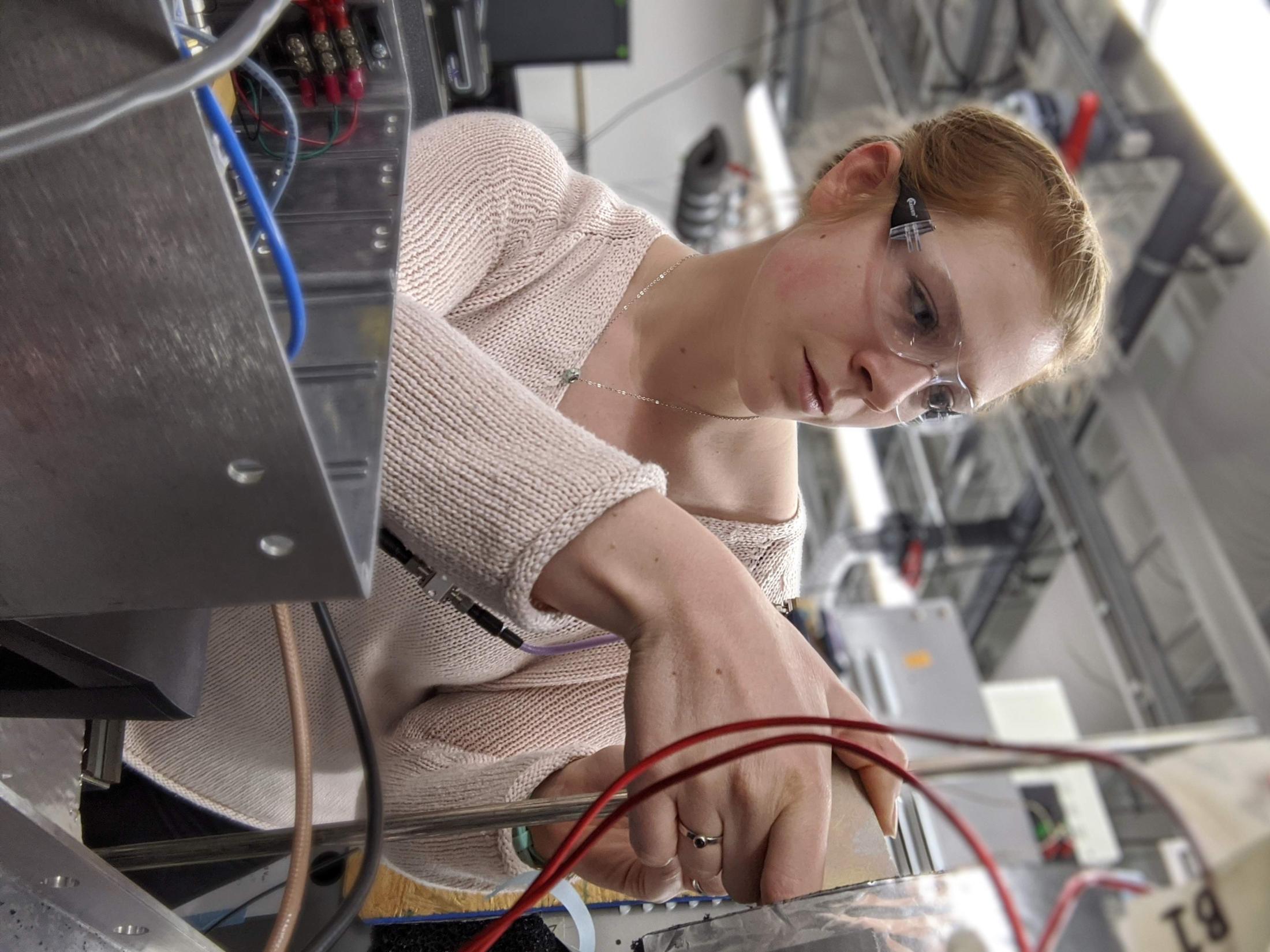
Sommer L. Johansen
(Ph.D. student, Chemistry)
Familiarity with a coding language is rapidly becoming an essential skill in many fields, however few undergraduate programs have required programming courses. A wide range of graduate courses at UC Davis require programming to complete assignments, leaving many incoming graduate students struggling to learn both a programming language and the course content. To address this problem, a Python Bootcamp was held during orientation week. Python is widely used since it is both free to acquire and has relevant libraries for many disciplines. The specific goals of this “bootcamp” were to: familiarize incoming graduate students with the basics of the Python coding language; provide additional resources to continue their learning; give them a chance to practice their new skills by completing a small project; keep all instruction within the limited time frame of a busy orientation week to prevent Zoom fatigue and scheduling conflicts.
This 3-day virtual workshop series was held from September 22nd to September 24th, before the start of the quarter. While the target audience was incoming graduate students, any interested graduate student or postdoc was welcome to attend. Each session included one hour of instruction, followed by the opportunity to work on their assigned project with other students in Zoom breakout rooms. Relevant videos and coding examples were posted on the website to complement each day’s instruction. The tutorials were also recorded each day and posted to the website for those who could not attend or who wanted to review the material again. Each day’s assignment built on the previous, with the goal of reinforcing concepts in the tutorials and encouraging the students to use the other resources provided to find ways to solve problems. In addition, a Slack group was formed to facilitate questions and conversations between participants and volunteers. In total, 156 graduate students and postdocs participated in the workshops.
Both the website and Slack group will remain active indefinitely so participants can continue to use these resources as they need them for their courses and research. The website can be found at https://python-bootcamp-ucd.github.io/bootcamp2020/.
Intercultural Communication and Conflict Management
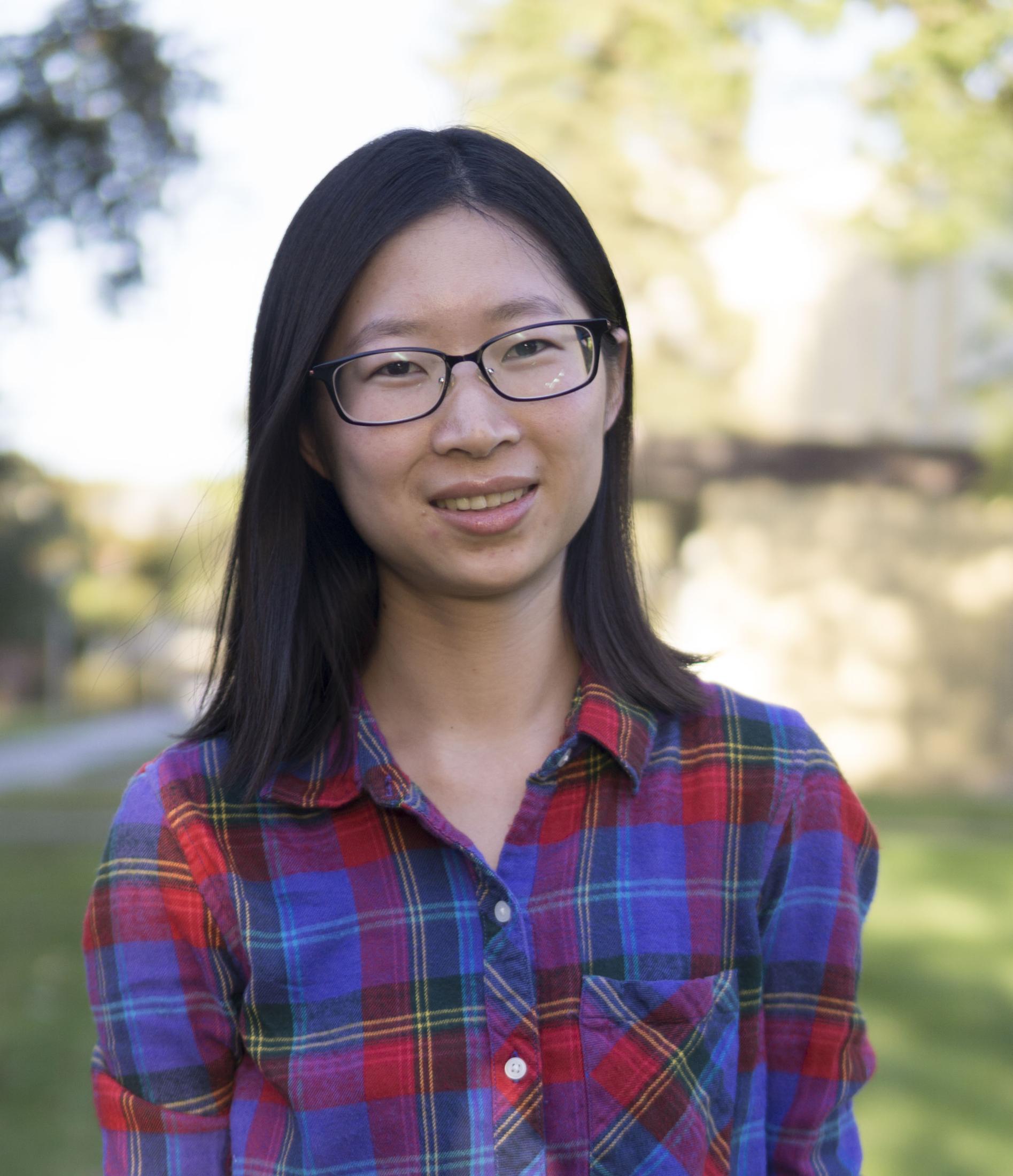
Jianping Pan
(Ph.D. student, Mathematics)
We thrive to treasure the interaction among groups from different backgrounds and enjoy enriched learning and social environments. Sometimes, conflicts occur across cultural boundaries. To address the lack of training graduate students and postdoctoral scholars receive in intercultural communication and conflict resolution, I invited Eric Sanchez and Christopher Nguyen Pheneger from the office of Diversity, Equity, and Inclusion to give a series of workshops. This was also a part of The Whole Scientist event with The Jackson Laboratory.
The first workshop was on Intercultural Communication and Competence. Participants learned about their own and each other’s communication styles through two informal self-assessments, including a communication style assessment, and a low vs. high context questionnaire. Participants then shared their scores and discussed the verbal patterns for a scenario. Instructors explored the diversity in communication styles and how these can be used in cross-culture situations. A key method designed to improve the chances for successful intercultural communication was to simply gathering information about the language, behavior, and attitude patterns of the other culture. Several additional strategies were shared including: being sensitive to language slang and nonverbal communications; avoiding preconceptions and stereotypes; paying attention; setting assumptions and values aside; withholding judgment; being complete and explicit; paraphrasing, summarizing and asking for verification.
The second workshop was on Conflict Management, which focused on Diversity in Conflict Modes. Topics covered included: conflict theory and stages of conflict; raising awareness of diversity in conflict modes; and sharing skills related to communication and conflict management. General guidelines for dialogue were provided and participants joined breakout rooms to share a time when they were in conflict. The instructors outlined an evolution of conflict theory. Traditionally, conflicts were viewed as negative and needing to be fixed. A typical response was to suppress them and deal with conflict indirectly, while in the interactionist view, conflicts are fra med as gifts and are encouraged at a constructive level to bring about positive changes. It is also important to accept that conflicts can be dysfunctional, which requires examination of how parties work through the stages of conflict. Participants were given a self-assessment on the Thomas-Kilmann’s Conflict Modes and were able to compare the scores for five conflict modes: competing, avoiding, compromising, collaborating, and accommodating, to gain a better understanding their preferred conflict mode. Finally, a four-step strategy for conflict management was shared to provide a process for moving forward.
Unlocking the Inspiring Aspects of Teaching: Asynchronous Workshop Series of Mentorship, Inclusivity and Engagement
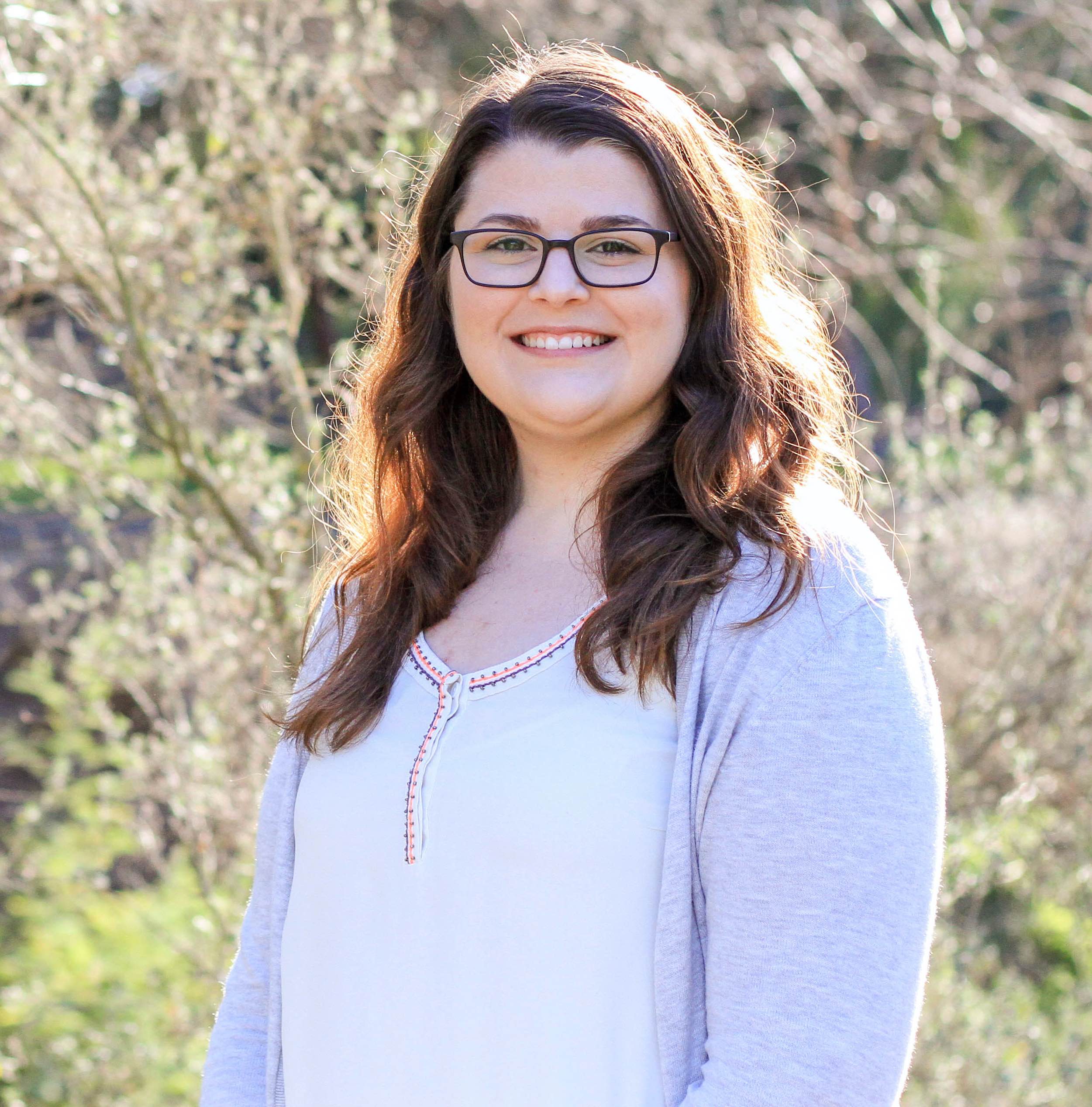
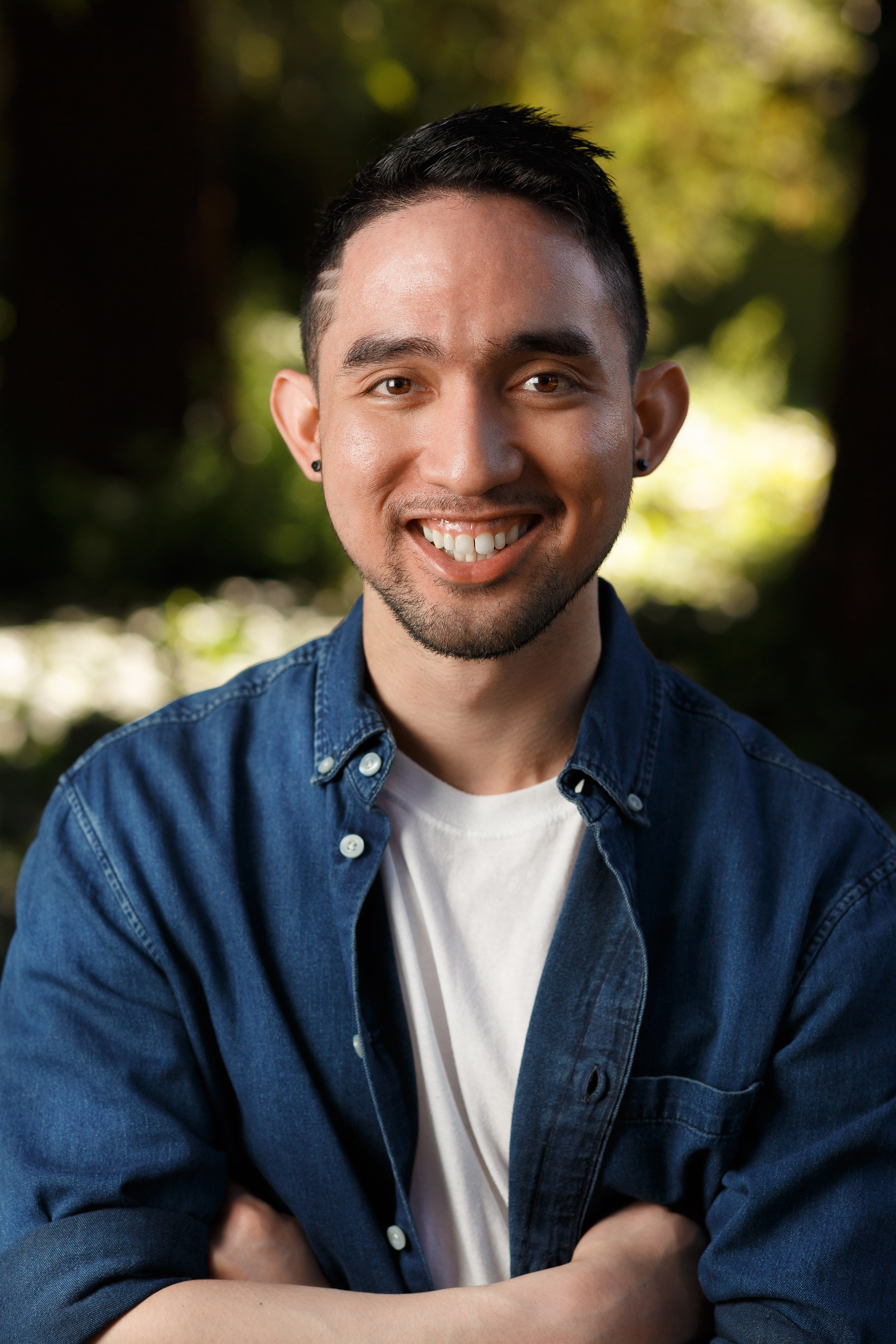
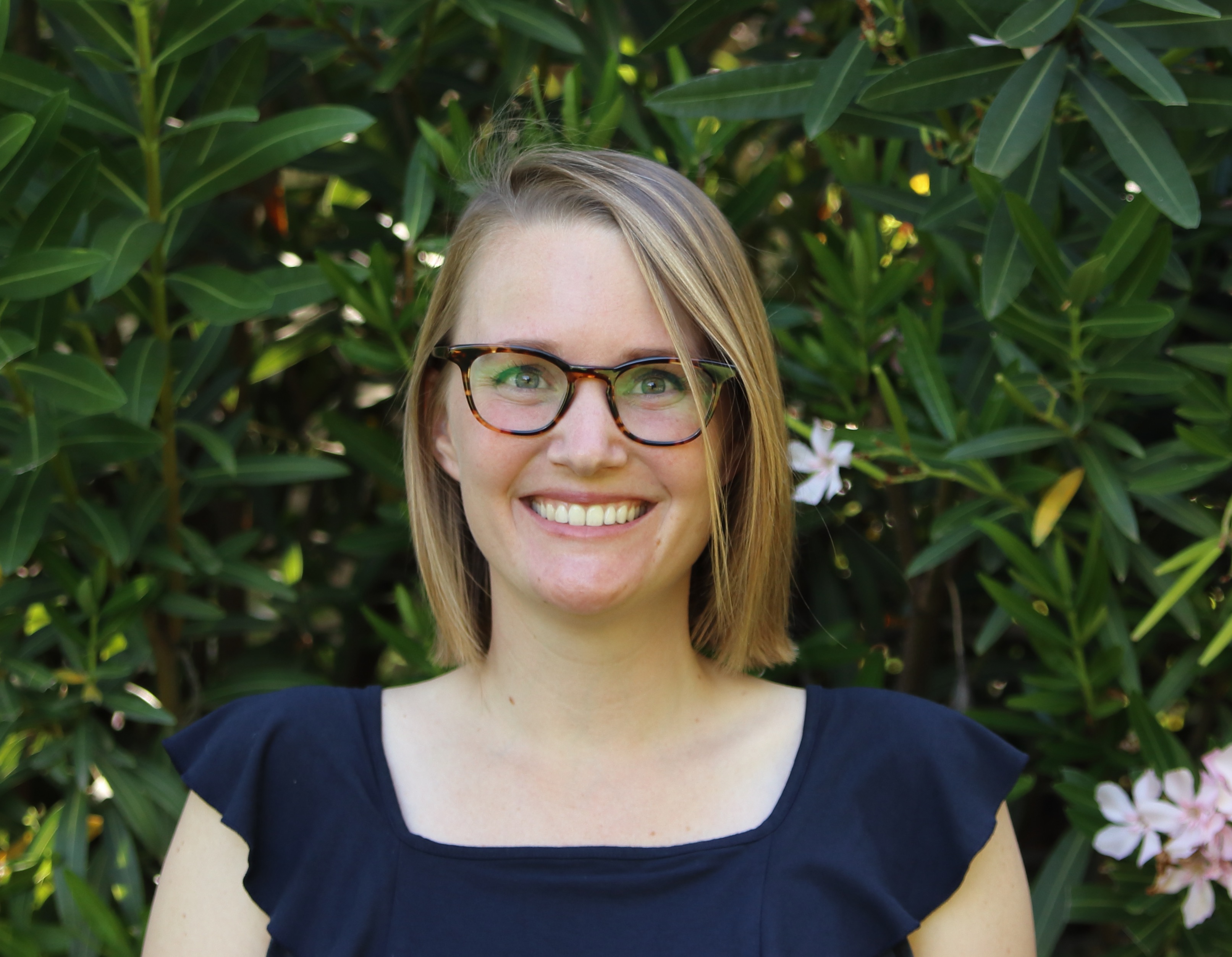 Lyndsey Ruiz, Peter Torres, and Lynea Witczak
Lyndsey Ruiz, Peter Torres, and Lynea Witczak
(Respectively: Ph.D. student, Nutritional Biology; Ph.D. student, Linguistics; Ph.D. student, Psychology)
There is no one-size-fits-all approach to curricula development. While the student body continuously diversifies, the shortage of underrepresented faculty members persists. Limited exposure to diverse faculty perspectives poses a challenge to graduate students and postdoctoral scholars when designing learning environments that are meant to be inclusive and engaging. To address this, we designed an asynchronous online workshop series on developing classroom mentorship, inclusivity, and engagement.
The mentorship module provided tools for integrating a teacher-as-mentor identity allowing participants to foster meaningful connections in the classroom and unlock the inspiring aspects of being an educator. The inclusivity module included video interviews of eleven faculty members discussing how they addressed their own challenges and provided viewers with first-hand practical knowledge to inform their teaching. Finally, the engagement module provided quick tips and suggestions for employing active learning strategies. Resources in this module not only focused on developing lessons, but also adapting didactic lessons to be more engaging.
Sixty-two participants actively took part in at least one module of the workshop. A total of 36 participants earned a certificate for completing all three short end-of-module assessments. Results from these assessments indicated improvements in knowledge and confidence related to implementing methods discussed in each module. This indicates that the workshop goal, to help participants appreciate the beauty of diverse perspectives while unlocking the inspiring aspects of being an educator and leader, was achieved.
Developing a Collaborative Relationship with Stakeholders
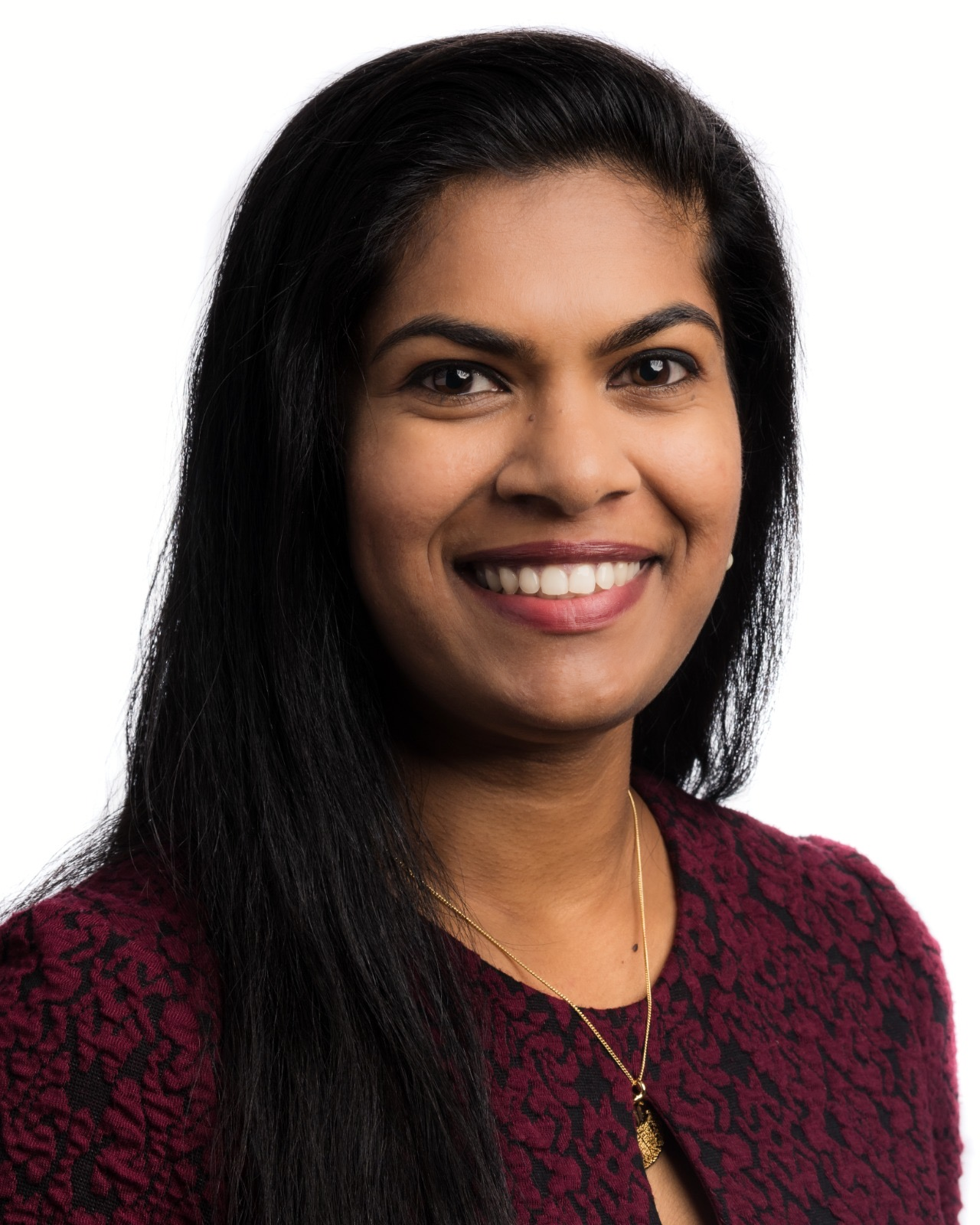
Salini Sasidharan
(Postdoctoral scholar, Land, Air, and Water Resources)
The biggest challenge in translating research findings by the scientific community into commercialization is securing and sustaining the support of key stakeholders. Often, graduate students and postdocs may not have the opportunity for direct engagement with key stakeholders. However, faculty members often must heavily involve various stakeholders such as government agencies, organizations, businesses, and individuals interested in your research project outcomes. It is crucial to maintain a positive and open relationship with stakeholders that is mutually beneficial. Therefore, graduate students and postdocs should be trained and should have an early exposure to identify, establish a connection, and effectively communicate the requirements and benefits of a specific research program to various stakeholders.
The workshop was conducted as a 2-hour webinar section with an expert panel discussion of four panelists. The panelists included Ms. Shannon Dosemagen, Director at Open Environmental Data Project and Shuttleworth Foundation Fellow; Dr. Elia Scudiero, Assistant Research Agronomist at the University of California Riverside; Dr. Sheila A. Martin, Vice President for Economic Development and Community Engagement at the Association of Public and Land-grant Universities, Washington D.C.; and Dr. Scott A. Bradford, Research Leader with the Sustainable Agricultural Water Systems Research, United States Department of Agriculture, Davis, California. The workshop was attended by a diverse group of graduate students and postdoctoral scholars from UC Davis, UC Riverside, and Oregon State University.
In the workshop, we have discussed the step-by-step process of developing a collaborative stakeholder relationship. Step 1: Identify the stakeholders; the stakeholders defined as an individual or organization, or community who has a common interest in the research that you are conducting and wants to form a mutually beneficial partnership. Step 2: Establish a connection; the students and postdoc should use their existing network (PI or mentors) to get introduced to the external network. Step 3: Initiate communication; various tools and strategies for initiating communication with stakeholders include emails, phone/virtual meetings, and in-person meetings. Step 4: Initiate the collaboration; demonstrate the potential beneficiaries of your research, and identify the input, benefits, and expected outcome for each party involved, and Step 5: Maintain the relationship; maintain a stakeholder relationship by fostering a shared commitment and resolving any conflicts and disagreements arises during the collaboration. The outcome for this workshop will be published as a handbook and YouTube video.
Beyond AB540: Enhancing the Undocumented Grad Student Experience in the University
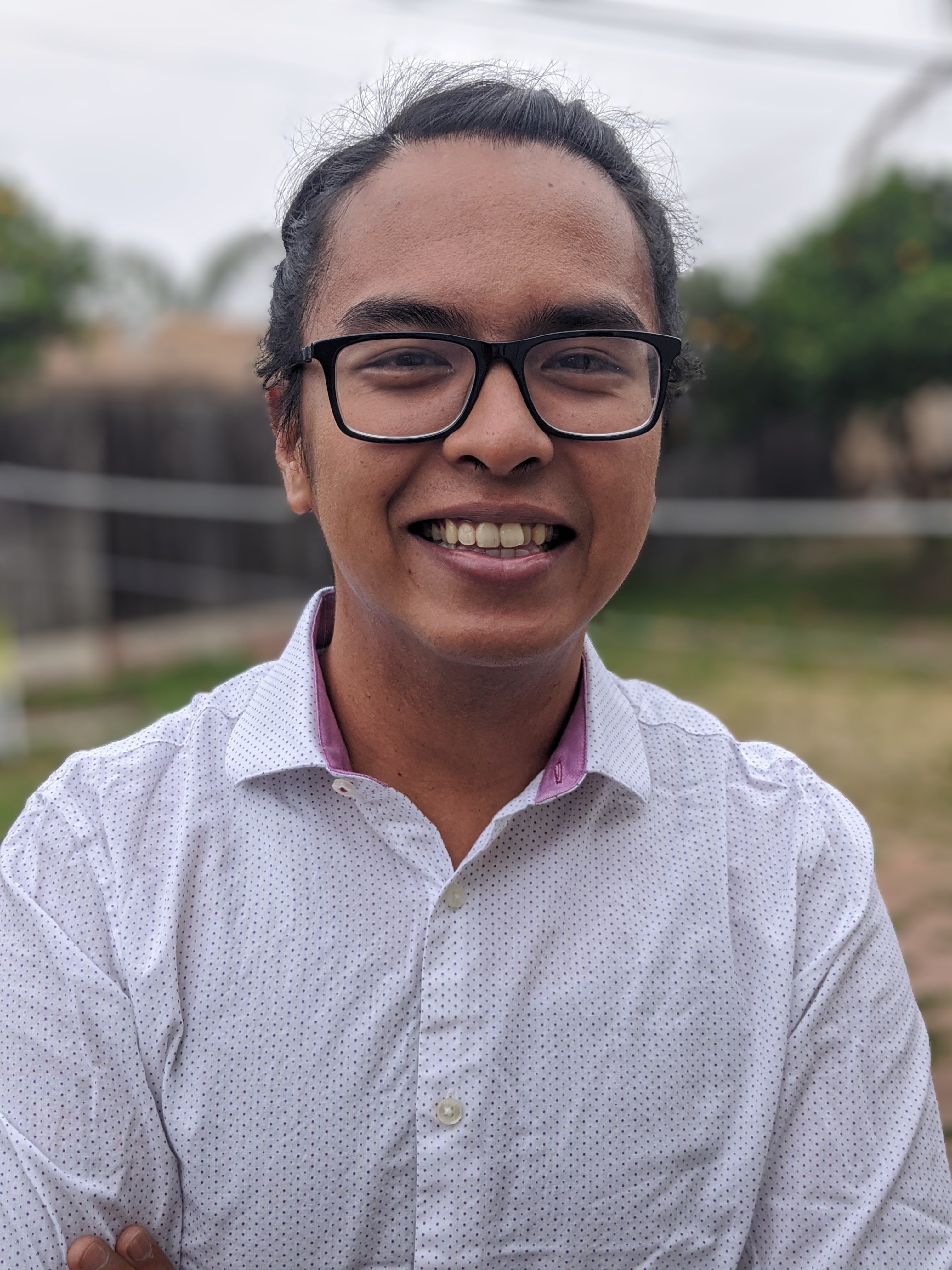 Roy B. Taggueg
Roy B. Taggueg
(Ph.D. student, Sociology)
While the AB540/Undocumented Student Center at UC Davis has been an incredible resource for those in need, many of its support programs are devoted to providing for the basic needs of undocumented undergraduates. In contrast, graduate student issues are anything but basic, involving complex funding streams, novel research hurdles, and a never-ending sense of loneliness derived from the solitary nature of the research process itself. Consequently, the problem I sought to address is how to establish the AB540/Undocumented Student Center as a space that is more inclusive of graduate student issues. To that end, who is actually using the space? Moreover, what audiences do the Center’s various programs target, and what capacity do those individuals have to transform the university as a whole to be more inclusive of undocumented graduate student issues? Over the course of the past year I, along with other members of the Undocumented Graduate Student Union (UGSU), met regularly with the leadership of the AB540 Center to discuss opportunities for funding and aid. I took a critical eye to the center’s various programmatic offerings and opportunities, and with these questions in mind, I explored how the AB540/Undocumented Student Center may or may not be serving the undocumented graduate student population. Moreover, I was able to gain access to non-sensitive, de-identified data from the Center’s UndocuAdvocate Program for Educators (UPE) to conduct an analysis of the center’s reach, and to gain a sense of the extent to which they have transformed the staff and faculty at UC Davis towards more effective allyship over the course of the last few years. A report was produced from this analysis and presented to the AB540 Center’s leadership during a meeting with the Undocumented Graduate Student Union. A condensed version of this report was presented at the Professors for the Future end-of-year reception.
How can we Retain Mothers in STEM in the Academic Pipeline?
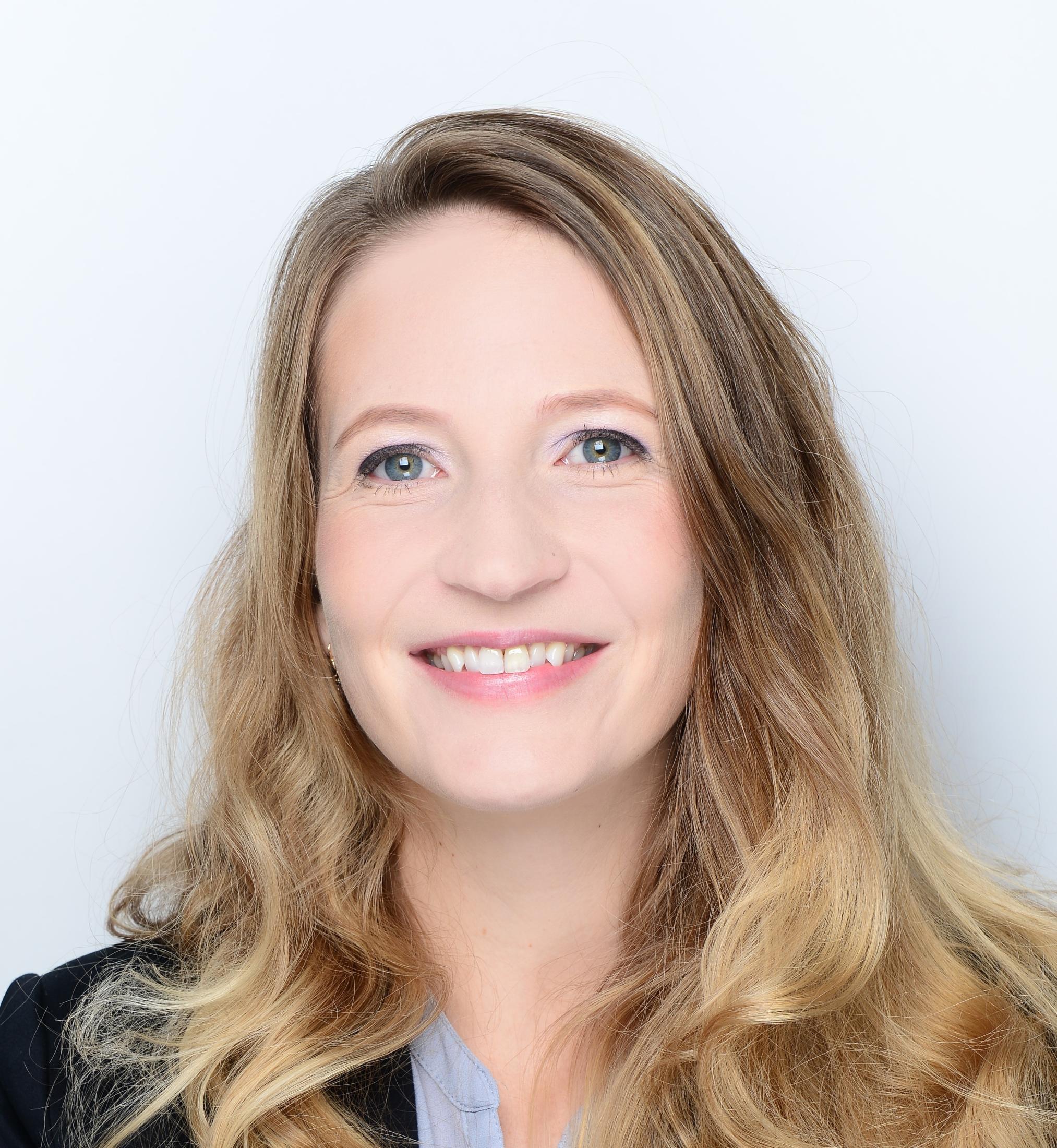
Kira Tiedge
(Postdoctoral scholar, Plant Biology)
For many PhD students and postdocs, starting a family coincides with a period of their careers where they are expected to be highly productive. The challenges of balancing personal life and work expectations leave many women dropping out of the academic pipeline. Recent studies have shown, that a supportive relationship with their advisors is critical for the success of Early Career Researchers and can be a decisive factor to retain young mothers in scientific careers. But what does it take to foster a healthy relationship between advisor and mentee? To answer this question I have been organizing a workshop to bring together graduate students, postdocs, faculty members, and resources on the UC Davis campus. The workshop took place online in spring 2021; 96 people registered for the event via Eventbrite and 66 people actually attended the workshop. Instead of using the raised budget of $300 for catering, the money went into the PFTF childcare grant.
The first part of the event featured four lightning talks from different groups and institutions on campus that offer resources for pregnant and parenting grad students and postdocs: Sandy Batchelor (UCD WorkLife), Vanessa Segundo (WRRC), Jennifer Billeci (Student Disability Center), and Veronica Thron (Safety Services). After a lunch break, we had a fishbowl discussion with four panelists: Dr. Siobhan Brady (faculty member at CBS), Dr. Natalia Deeb-Sossa (faculty member at School of Education), Dr. Lidor Shaar-Moshe (postdoc at CBS), and Vanessa Segundo (PhD candidate at School of Education). One of the aims of the discussion was to share advice regarding how to best support student parents. Another question aimed to discover what resources or guidelines would be needed for faculty members to better support mothers in academia. A newspaper article that summarizes the event can be found here: https://theaggie.org/2021/04/16/workshop-fosters-solidarity-among-student-parents-strives-to-retain-women-with-children-in-the-academic-pipeline/
Based on the feedback and outcome of the event I am now working with the dean and the director of Graduate Academic Programs of CBS to implement guidelines and practices for how the college can best support pregnant and parenting grad students and postdocs.
Seeing is Believing: Communicating Research through Virtual Worlds

Jiyoon Yi
(Ph.D. student, Food Science)
Public communication of scientific findings can often be challenging due to the complexity of research design and datasets. Graphics can help, yet graduate education in STEM focuses on the ways that require additional training for non-experts to read. Accordingly, the learning motivation and engagement of the public can be limited when using graphics designed for research articles. Thus, this project aimed to provide graduate students and postdoctoral scholars with resources to visualize scientific data for public communication purposes, especially in virtual environments. Virtual reality (VR) was used to bring interactive experiences similar to the real world, thereby adding appropriate context to datasets. This would allow target audiences to visit virtual places even when physical traveling or in-person meetings with scientists are limited.
This project was conducted in collaboration with the UC Davis Public Scholarship and Engagement (PSE) and Prof. Chris Simmons in the Department of Food Science and Technology. It consisted of five-part 30-min webinar series followed by live hands-on activities in April 2021. Topics included: 1) introduction to public communication of scientific research; 2) understanding and analyzing target audiences; 3) tutorial of an open-source 3D visualization tool; 4) utilization of the 3D visuals to create an interactive VR-enabled web page; and 5) a case study that demonstrates the application of the learned skills.
Based on the feedback, all participants agreed that the contents were helpful and easy to follow and expressed interest in learning more. Most (65%) indicated that they would apply the learned skills to their research projects. In sum, this five-part webinar series helped participants gain resources and start thinking about the impact of their research and ways to improve the public’s learning engagement. The recording of this webinar series is available on the GradPathways Institute YouTube channel.
